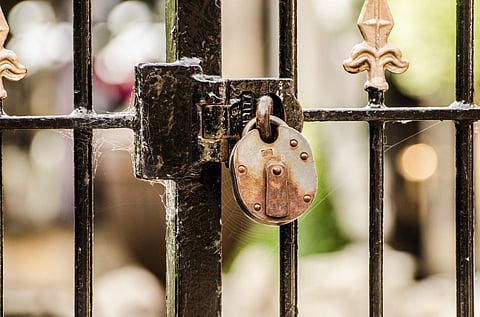

The COVID-19 pandemic has changed education as we know it. With classes online and schools, colleges and universities shut for the last eight months, the times have been different and difficult. And one of the things that students of higher education institutions have not received much is access to resources in their institutes. Recently, the University Grants Commission (UGC) released some rules and guidelines to reopen colleges and universities amid the COVID-19 pandemic that all universities and colleges under it have to follow. While some of these guidelines are similar to the standard operating procedures elsewhere, it also states that laboratories, libraries and other campus facilities will continue to have limited access. This has impacted researchers, who need access to archives and laboratories more than anyone else.
The guidelines state, "Students of all research programmes and post-graduate students in science and technology programmes may join as the number of such students is comparatively less and norms of physical distancing and preventive measures can be easily enforced." It also allows the final-year students to come back to the institute for "academic or placement purposes". This has left researchers in other years, and especially those not pursuing science, in a lurch.
Among them is Lena Joseph, a student at the English and Foreign Language University (EFLU), Hyderabad, who is pursuing a PhD in Indian and World Literatures. "The lack of the environment for research is a big drawback, added to the idea of being at home with all the responsibilities/distractions,
The guidelines have stated that field trips and outdoor activities are not to be permitted. "Universities and colleges should prepare a policy for restricting the outside experts on campuses, study tours, field works etc., keeping in mind the COVID-19 situation," the guidelines state. Indeed, that makes it quite difficult for on-field research.
While University of Hyderabad (UoH) student Mrityunjay Pandey, who is pursuing a PhD in Economics, has been in campus throughout the lockdown and after, he hasn't been able to access anything in the library. "My research is mostly based on fieldwork, which I haven't been able to do and won't be able to do soon even if it was allowed. We have not been receiving fellowships from the UGC during the lockdown period," he says. Mrityunjay belongs to a large group of researchers who are demanding an extension for the submission of their final projects since universities were closed for the last several months. "I was supposed to do fieldwork from June but that didn't happen. The library was also shut and I could only stay in my hostel room for all these months not doing much. While the university is prepared to give us an extension, the UGC seems unwilling to do so," he adds.
Saket Moon, a Jawaharlal Nehru University (JNU) PhD student and JNUSU Vice-President, also echoes a similar sentiment. "The UGC guidelines have made it worse by creating a distinction between Science and non-science students. JNU is still not allowing research scholars back in the campus and we don't have access to resources," Saket says. "In Social Sciences, there is some kind of fieldwork that can only be done at certain times in a year. Most students have missed that and they now have to wait for a whole year to do their research. So, asking for an extension is quite legitimate, which have not been mentioned in the guidelines," Saket says, who is a student of the Centre for the Study of Social Exclusion and Inclusive Policy. "Access to libraries and other resources have been given to only final-year students and Science students, according to the guidelines, which is a major oversight," adds Saket.
But it's not all smooth sailing for those in Science either. IIT Delhi Materials Science and Engineering PhD student Vickey Nandal says that while he didn't face much access issues, the untimely release of funds and hefty hostel fees at the campus have deeply affected research scholars. "Researchers at many institutes, including IIT Delhi, have had to pay an extra amount if they decided to stay at the hostel during this period. This has created financial challenges for many scholars, who support their families with limited scholarships they receive. So many people have been rendered jobless due to the pandemic and the lack of timely disbursals of scholarships have impacted many scholars," says Vickey.
